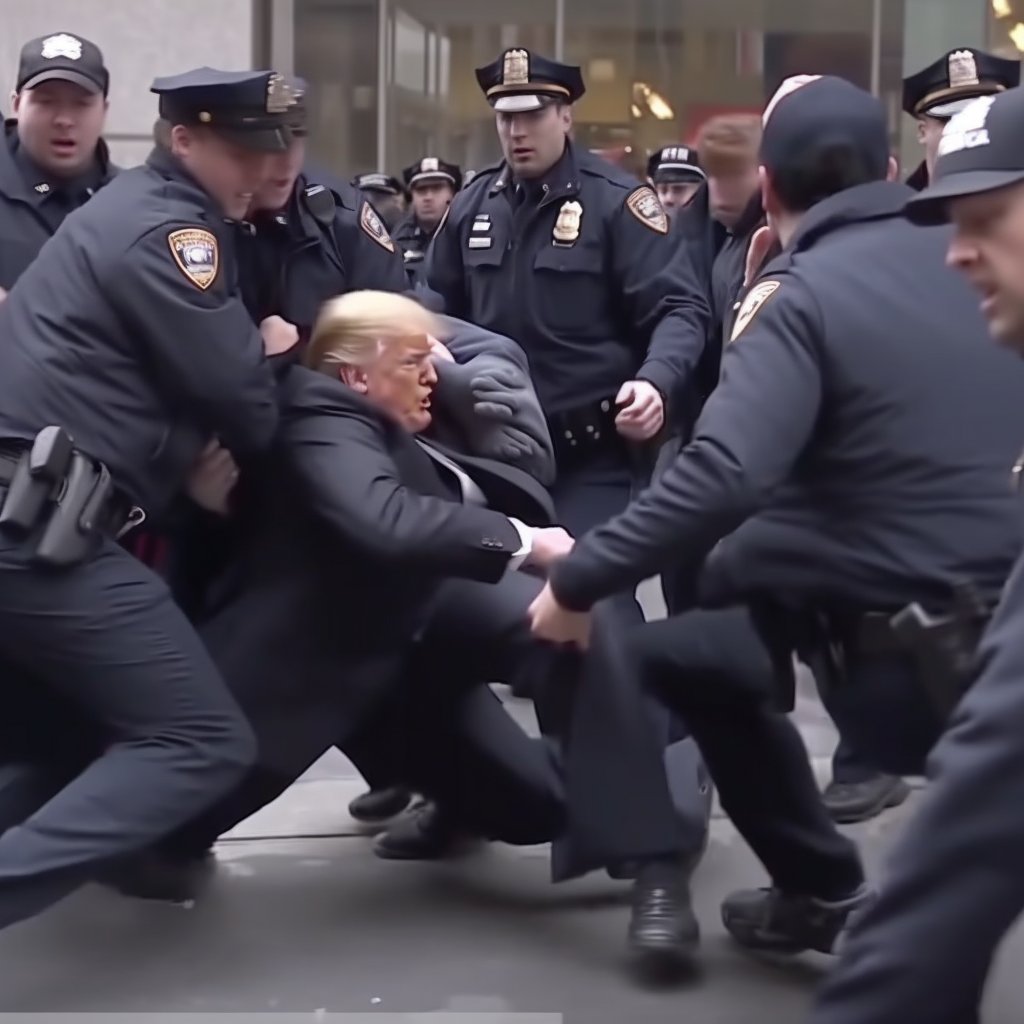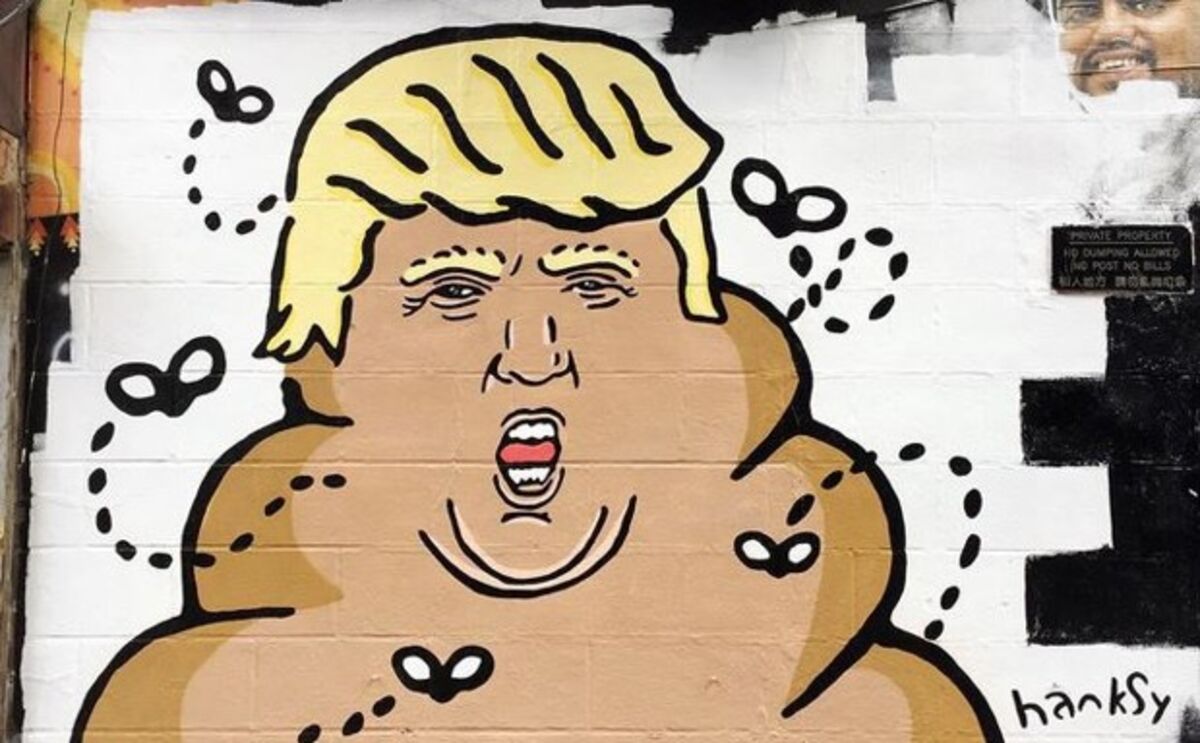Trump "Poop" Rumors: What's Trending? - Latest News
Has the rumor mill spun out of control, or is there a kernel of truth to the swirling allegations surrounding a recent incident in France involving former President Donald Trump? The internet, a notoriously fickle beast, is currently fixated on claims that have gone viral, prompting widespread speculation and, inevitably, the inevitable spread of misinformation.
The digital landscape, as it so often does, has become a battleground of whispers, accusations, and the relentless pursuit of the next viral sensation. This time, the focus is on the former president, and the allegations are, to put it mildly, unflattering. The crux of the matter revolves around a video circulating online that purportedly captures a moment of, shall we say, "unpleasantness" during a dinner in France. The footage, according to reports, shows audience members reacting to what is perceived as a foul odor, leading to immediate online commentary and speculation. The video has sparked conversations, debates, and, of course, a healthy dose of social media mockery.
| Attribute | Details |
|---|---|
| Full Name | Donald John Trump |
| Date of Birth | June 14, 1946 |
| Place of Birth | Queens, New York City, New York, U.S. |
| Political Affiliation | Republican |
| Education | Fordham University, Wharton School of the University of Pennsylvania (B.S. in Economics) |
| Business Career | Real Estate Developer, Television Personality |
| Political Career | 45th President of the United States (2017-2021) |
| Notable Achievements | Tax cuts, appointed conservative judges, oversaw economic growth before the COVID-19 pandemic |
| Controversies | Multiple investigations, impeachment proceedings, numerous lawsuits, allegations of sexual misconduct |
| Official Website | https://www.donaldjtrump.com/ |
This incident in France has, unsurprisingly, triggered a flurry of online activity. Social media platforms are awash with commentary, speculation, and, in some cases, outright accusations. The initial video, which appears to have been captured during a formal dinner, has been scrutinized by countless users, each offering their interpretation of events. The focus is on the reactions of those present, with many suggesting that the visible responses indicated an "unpleasant" event. Theres a dark humor at play; the incident has been reduced to an internet meme.
One of the initial claims circulating online centers around the very public question: did Donald Trump, during this event in France, suffer some sort of digestive mishap? This claim has taken hold and now the phrase, "Trump shitting himself" has become a commonly searched phrase. The incident, however, has been met with mixed reactions, as expected. Supporters of the former president are largely dismissive of the claims, labeling them as "fake news" and an attempt to smear his reputation. Some have gone as far as to suggest that the video itself is a fabrication, created with malicious intent. On the other hand, Trumps detractors are reveling in the opportunity to poke fun, and, in some cases, to use the incident as another stick with which to beat the former president.
The allegations, which quickly spread across various social media platforms, were met with a variety of responses. Some users expressed genuine concern, while others saw the incident as an opportunity for political commentary. The incident has been interpreted as evidence of a decline in health, a point that has been repeatedly emphasized by those who dislike Trump. It is perhaps an example of how the public will readily interpret any event that confirms their existing opinions.
Adding fuel to the fire, one social media post claims that Trump himself has decided to address the claims. It is important to note that many of the claims made online are based on speculation and conjecture, and should be treated as such. An image circulating appears to be a screenshot of a Truth Social post in all caps, reading, "THE FAKE NEWS IS SICK!" The authenticity of the post, however, has not been independently verified, and it may very well be the product of a satirist looking to capitalize on the situation.
The current political climate in the United States is deeply polarized, which means that any event involving a prominent political figure is almost guaranteed to be met with partisan interpretations. This is particularly true when the figure in question is Donald Trump, who has an almost equal number of ardent supporters and virulent detractors. Those on the other side of the political divide have started spreading a rumor that the former president, who is now 78 years old, is actually...well, you get the picture. What follows is a chorus of accusations, and the rumor rapidly spreads on social media.
The fact that the allegations have gained such traction is perhaps unsurprising, given the current political climate. The online conversation, as one would expect, is filled with mockery and jokes. Another key point of discussion: "Did Donald Trump post 'I don't poop myself' to his social media platform, Truth Social, as posts on social media suggested?" The answer, at least as of the time of writing, is unclear. An account on X, which describes itself as posting satire and parody content, initially shared an image that appeared to be a screenshot of the quote, but with a satire label, which muddies the waters. The account's disclaimer suggests that any claims emanating from the account should not be taken as fact, but as humorous observations of current events.
Amidst the online frenzy, questions arise about the validity of the claims, the intent behind their dissemination, and the impact on the public perception of Trump. Without definitive evidence, it is impossible to verify the accuracy of the claims. The internet, as a whole, is a very mixed bag of information. Much is true, but much is not. This is why one must be very careful about making judgments regarding the validity of information that one consumes online. The claims have not been independently verified, and should be treated with extreme caution.
Regardless of the truth, the incident has, at a minimum, highlighted the ever-present nature of misinformation and its ability to spread quickly on social media. The speed at which the allegations spread demonstrates the power of online narratives and the impact of social media on modern politics. The controversy serves as a reminder of the challenges faced by individuals and institutions in a world of instant information, where rumors can quickly gain momentum and shape public opinion.
One must also consider the motives of the accusers. The dissemination of the alleged incident seems to have been politically motivated, as the former president has many critics who may be looking to hurt his reputation. It is quite plausible that the incident was leaked in order to undermine his political standing. The ongoing investigation into Trump's actions, the multiple lawsuits, and the constant media attention contribute to a complex web of accusations, defenses, and counter-claims.
Even if the incident is, in fact, a genuine event, one must still ask about the validity of such revelations. Should details such as this details about a persons biological functions be considered to be matters of public discussion? Or should such details be considered private? Even if one does not like the former president, should these matters really be of interest to the public? These, of course, are difficult questions.
While the specifics of the alleged incident remain unconfirmed, the incident has also exposed the ongoing scrutiny surrounding the former president's health. At 78 years old, Trump is already facing a barrage of criticism, and the incident has given his opponents additional ammunition. This is not to say that the claims are valid, but rather to say that the claims have been readily embraced and circulated.
Amidst the digital storm, the question of whether the former president will address the allegations directly is a matter of much speculation. The social media landscape will, undoubtedly, continue to buzz with commentary, conspiracy theories, and a healthy dose of ridicule. The story continues to develop, and the truth, as always, may remain elusive. The incident serves as a case study of how rumors are created, circulated, and consumed in the internet age.
As for the legal implications, its worth noting that Donald Trump is not immune from prosecution for alleged crimes he committed during his presidency to reverse the 2020 election results, a federal appeals court ruled. This ruling adds another layer to the ongoing legal challenges faced by the former president. The events are taking place in a charged political environment, where accusations of misconduct can quickly escalate into a full-blown media storm. The ability of such allegations to capture public attention and fuel online discussion underscores the influence of social media in the modern political arena.
There is also the incident involving President Joe Biden to consider. A video went viral online that showed an awkward moment at an event involving President Biden. The conversation, predictably, drifted toward Bidens own physical well-being. Online commentators stated, Look at Joe's face afterwards, I think he pooped himself," a third added. While the context differs, the online reaction to the incident involving Trump mirrors the online reaction to the incident involving Biden.
In the end, the incident is nothing more than another case study in the power of social media, misinformation, and the relentless pursuit of the next viral moment. Whether the claims are true or false remains to be seen. What is undeniable is that the incident has generated substantial attention and sparked yet another round of political debate. The event, regardless of its authenticity, highlights the increasingly blurry lines between fact, fiction, and the ever-present, often chaotic nature of the internet.
The debate, held in Atlanta, Georgia, was moderated by CNN hosts Jake Tapper and Dana Bash. This adds another element of the story, as it illustrates that major news outlets, too, have been forced to grapple with the claims. The media has the responsibility of keeping the public informed. However, it must also be careful to avoid being used for propaganda or misinformation. The ongoing developments serve as a reminder of the challenges faced by media organizations in the digital age.
The ongoing controversy raises questions about how we consume information, the nature of public discourse, and the impact of social media on the political arena. It serves as a case study in the spread of rumors, the power of online narratives, and the challenges of verifying information in the age of instant communication. It illustrates how quickly unsubstantiated claims can gain traction and shape public perception.
In an age of unprecedented access to information, it becomes all the more important for individuals to practice critical thinking and media literacy. The online world is full of information, and one must be very careful when considering what that information means. The events highlight the need for responsible media consumption and a healthy dose of skepticism, as the internet continues to shape our understanding of the world around us. The incident, in conclusion, is just another reminder of the need for caution and scrutiny in the digital age.


